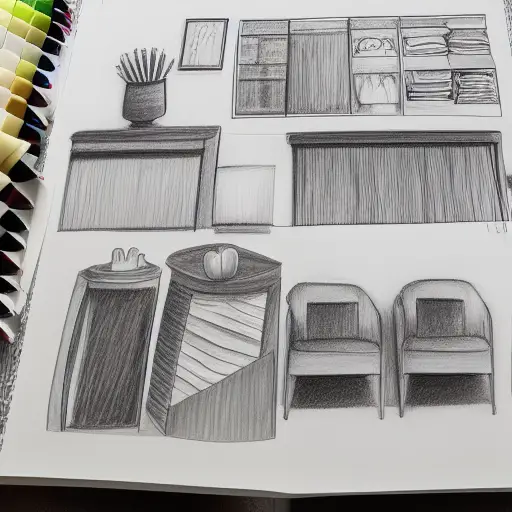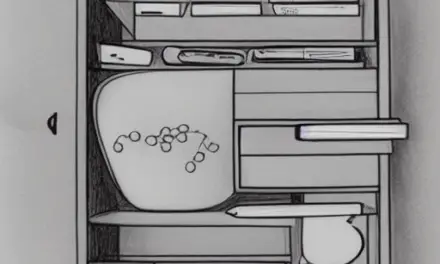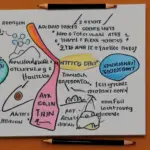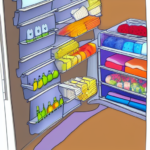Decluttering and organising can be difficult. The best way to get started is to choose a space and use a simple method. There are many methods to help you clear your home of unnecessary clutter, so choose one that works for you. Here are a few ideas to get you started.
Decluttering
Decluttering and organising can be difficult processes if you have a cluttered home. It is necessary to evaluate each item carefully and decide whether it still has value or can be donated. It is best to keep a garbage bag handy and a bin for donated or sold items nearby so that you can discard unnecessary items as you declutter.
It is important to keep a timeline for your decluttering process. Decluttering can be broken up into phases, with a completion date assigned to each phase. Make sure the deadlines are realistic and achievable, as this will help prevent frustrations and overwhelm. You can also set specific times to work on different spaces.
Decluttering is a necessary step before organising. Once you have decluttered, you can focus on organising the remaining items. This will make the process more efficient. If you have a lot of old items, you can donate them to charities or sell them for profit. You can even set up a bin for friends and family members who may want to donate items to you.
Decluttering and organising your home is a great way to reduce stress and create extra space. It helps you identify the important items in your home, making it easier to live in an organised home. It can also help you to organize your life, which is more enjoyable and relaxing.
Organizing
Decluttering and organising is often a difficult process. Both involve reducing the amount of stuff you have and making the space more organised. Decluttering a room is an important first step in the organising process. Once you have reduced the amount of things you own, it’s time to organise the remaining items. Storage can be a great help when it comes to organising.
To declutter, you’ll need to decide where to start. Often, a person will be more comfortable starting small. They can start by sorting through out-of-date items and paperwork. They can then move onto more important items. As a result, decluttering can help you simplify your life and enjoy your home more.
While you might be tempted to try to organise before decluttering, the results will be temporary. It won’t address the main problem: clutter is a big problem that needs to be tackled head-on. Decluttering will free up space in your home and mind.
A previous study found that younger people who had difficulty decluttering and organising their living space had lower self-esteem. The authors of the study conducted a questionnaire using the Japanese version of the Saving Inventory-Revised (SI-R). It found that those who were less organised had lower self-esteem, and that they were more likely to be depressed.
Choosing a space to declutter
First, choose a space in your home to declutter and organise. This will make it easier to sort through everything and decide what to keep. Then, clean the space thoroughly. If the space is large, consider dividing it into smaller sections.
Choosing a method to declutter
The first step to declutter and organise your home is to choose a method. Whether you are dealing with one room or an entire house, choosing a method will make it easier to get rid of a lot of clutter at once. You can declutter by room or space by following certain categories.
Decluttering by category is an efficient way to declutter your home. It removes the location of items and focuses on the type. Popularised by the Japanese home organisation expert Marie Kondo, this method has become a popular way to declutter. There are many different ways to declutter, and selecting the best method for your home depends on your personality type, how much clutter you have, and how much space you have to devote.
Health benefits
Decluttering and organising your home is an excellent way to improve your health. Clutter can make it difficult to focus, irritate you, and decrease your energy levels. Plus, a cluttered home can attract insects and other pests that carry germs. When you declutter and organise your home, you’ll have a cleaner, less-polluted environment and less time fumbling through piles of stuff. Not only can this improve your mental health, but it can also improve your efficiency and productivity.
Another benefit of getting rid of clutter is a better night’s sleep. You’ll be able to relax more easily and won’t spend half the night worrying about what you’ll do the next day. Being organised also reduces stress. People with cluttered homes report higher levels of cortisol, which is a stress hormone.
Decluttering can also help prevent the accumulation of allergens in your home. This is because unused items collect dust and allergens. Decluttering will improve indoor airflow in your home, preventing the accumulation of allergens. By eliminating these allergens, you’ll feel better overall and avoid sickness.
Decluttering is also good exercise. Simply dusting can burn up to 174 calories an hour! And by eliminating extra clutter, you’ll feel lighter and have more time for family time.
Time to declutter
Taking time to declutter and organise your home can bring you a lot of peace of mind. This process can help you determine what is truly important and what isn’t. It can also streamline your home so it’s easier to manage and more enjoyable to live in.
The first step in decluttering and organising your home is to examine your own habits. It is crucial to understand why you collect so much clutter in the first place. If you are prone to collecting junk, you can’t expect to get rid of it all in one go. So be realistic about your expectations and start small.
During the decluttering process, start by putting things in a put-away bin or another storage space. There are many ways to get rid of things you don’t need or want. To make the task easier, sort the items into the proper bins. If you have children, you can label their boxes or bags accordingly.
The next step in decluttering your home is to make a list of tasks you need to do. Write down the tasks you need to do in as little time as possible. This way, you won’t end up burning yourself out.











